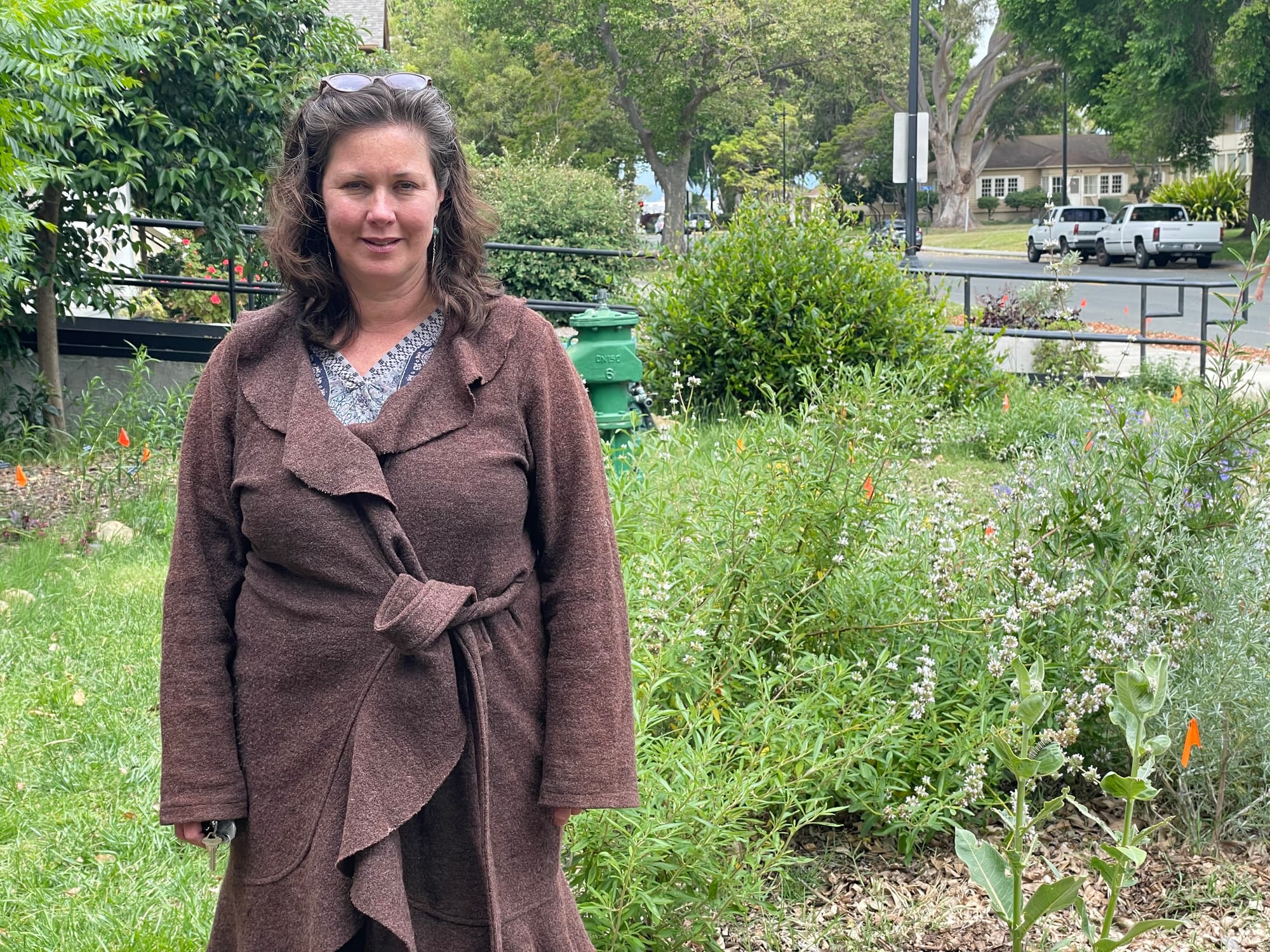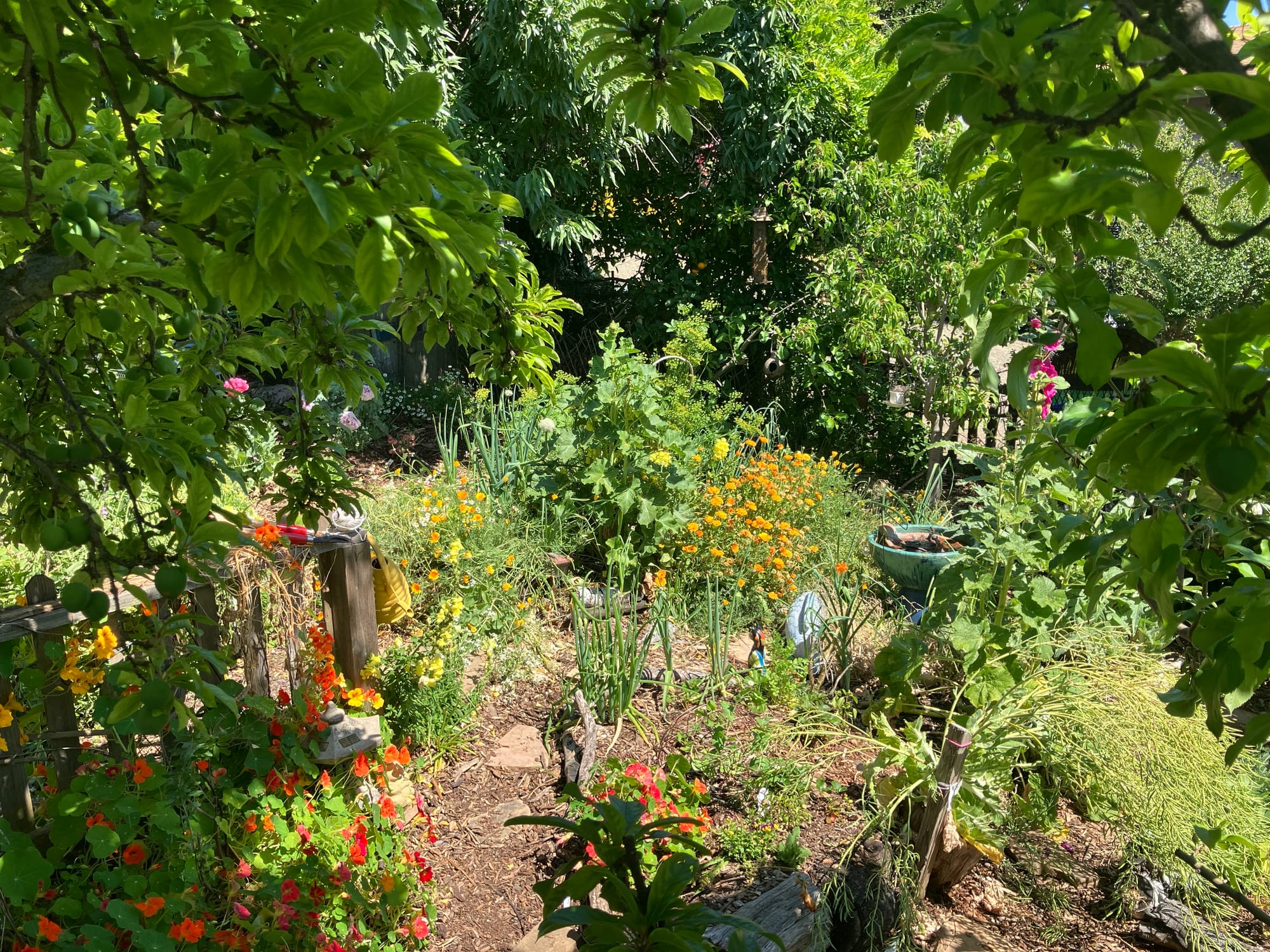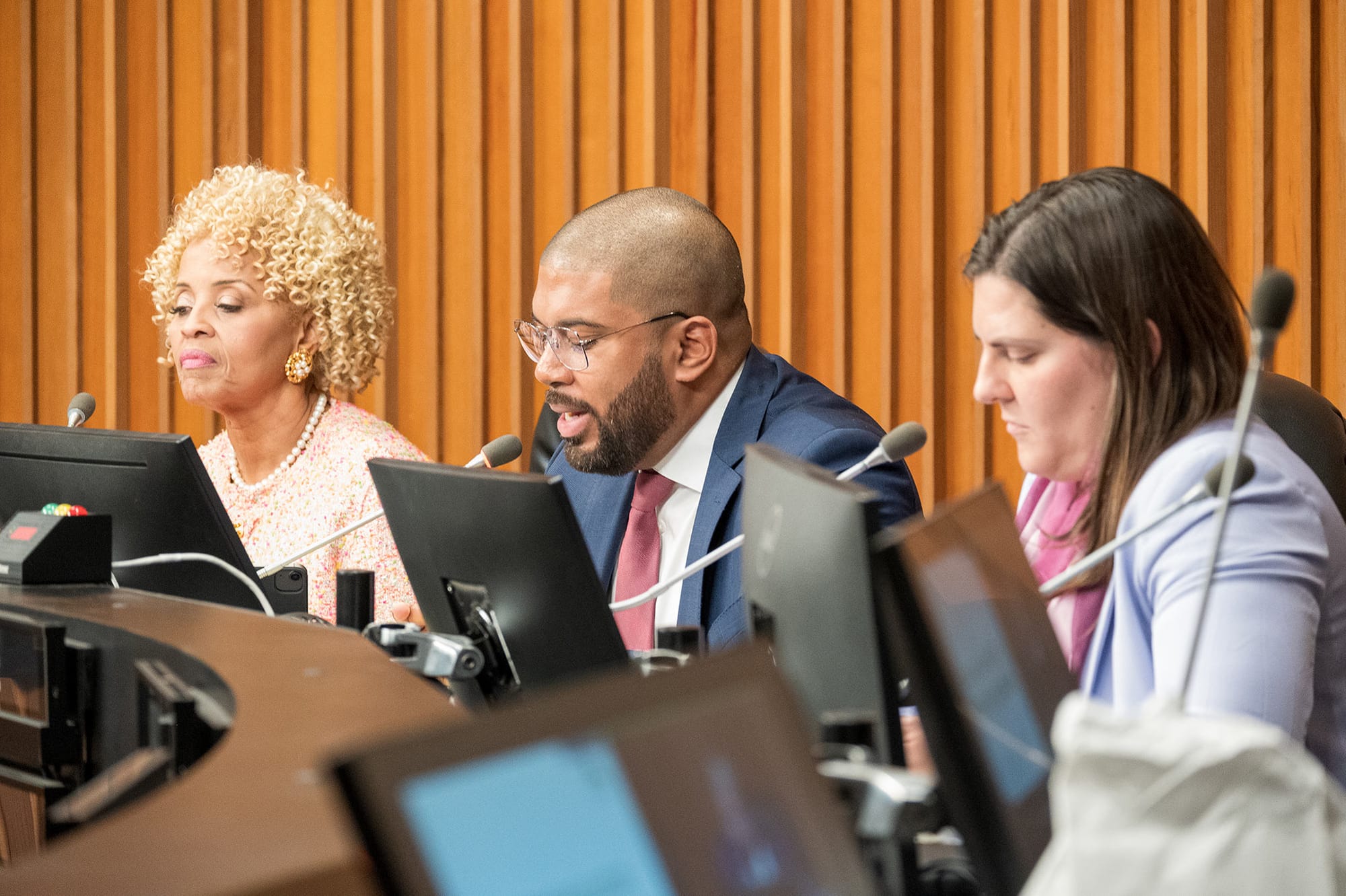VALLEJO — For the last 25 years, Sustainable Solano, a grassroots nonprofit organization, has been creating ecologically sustainable environments that help strengthen communities across Solano County.
Started in 1999 as Benicia Community Gardens, an all-volunteer organization led by Founding Executive Director Elena Karoulina, it focused initially on bringing local and sustainable food to Benicia.
Over time, Sustainable Solano has expanded to include more community gardens, permaculture food forests in private gardens, partnerships with local farms delivering Community Supported Agriculture boxes, and free education programs to teach Solano County residents how to create water-efficient yards that provide food, beauty and encourage community building.
In 2014, the organization received funding from the Benicia Sustainability Commission to create seven demonstration food forests, applying the principles of permaculture. These include building healthy soils with organic matter such as wood chips, using greywater from laundry and rainwater diverted from roof gutters into ground swales and basins to irrigate the garden, and creating a habitat that is beneficial for wildlife and humans.
Since the seven gardens saved half a million gallons of water annually, the organization secured funding from Solano County Water Agency in 2016 to expand the program countywide.
As of today, Sustainable Solano has installed 41 food forests in private properties located in seven Solano County cities, including Vallejo. They don’t plant anything solely for aesthetic purposes, but they might make room in the garden for the owner to do it themselves, if they request it.
“We always want each plant to have multiple functions,” said Nicole Newell, program manager of sustainable landscaping. “Perhaps it’s a plant that is edible and fixes nitrogen in the soil. Or it’s a dynamic nutrient accumulator and attracts pollinators. Or is a tree that provides food and shade.”
Sewell chooses four gardens a year for the Sustainable Backyards program, but despite the name, most installations are done in front yards to replace water-thirsty lawns. Sustainable Solano offers the design, installation and materials—including plants and trees—free of charge, provided the homeowners commit to doing educational tours for five years after installation.
They also give the owners fliers to pass around to their neighbors. “The whole idea is for people to come learn what we’re doing, get inspired and apply it to their yard,” Newell said.
To choose the four gardens, Newell prioritizes lawn conversion because it shows the most water impact. She also assesses need, that is, if the homeowner wouldn’t be able to finance the project without their support.
Although water efficiency is an immediate benefit, Newell emphasizes that intangible benefits are just as important. The new garden becomes a space for relaxation and community building, as neighbors come by to find out more about it.
“It’s about creating a space where people can inspire each other to heal the earth and to create an ecosystem of relationships,” she said.

Nam Nguyen—a homeowner who was part of the first seven demonstration forests—agrees. Her lush garden has produced hundreds of pounds of fruit, including plums, bosc pears, mandarin oranges, almonds and pomegranates, as well as a bountiful array of vegetables, herbs, and edible flowers. But even more important, it has become a haven providing mental health benefits and community connections.
“I tour the garden every morning and it’s very grounding,” Nguyen said, “especially when there is a lot of trouble going around in the world. Plants go at their own pace. No matter what’s going on, they are still fruiting and flowering and doing their thing, so it slows me down, and it’s very relaxing.”
Nguyen often attends Sustainable Solano’s free classes and installations, and through them has made friends in Vallejo, Benicia, Fairfield and Vacaville. Aside from that, she and several neighbors who have edible gardens or beehives exchange fruits, baked goods and honey, and she often answers questions about her yard from neighbors walking their dogs. “I mainly relate to other people through the garden,” she said.
She asked the Sustainable Solano designer to create a low maintenance and drought tolerant yard. Almost a decade later, her soil is so rich and holds water so well, that she removed the drip irrigation. “I do a little hand watering if I put in some annuals, but that’s about it,” Nguyen said. “Now it’s just about cutting things back because everything grows so much.”

Backyards program in jeopardy
Unfortunately, the Sustainable Backyards program is in jeopardy because Solano Water Agency has just cut the funding, a decision that needs to be ratified by the Water Agency Board in June. If they approve the cut, the program will need to find another funding source.
Although funding is an ongoing challenge, because there is no stability from one year to the next, Sustainable Solano has grown steadily, and now has eleven people on staff and several thriving programs, aside from the Sustainable Backyards.
One is Solano Gardens, which creates edible community gardens based on permaculture principles in partnership with local landscapers. “It has to start with a community wanting a garden. We'll bring in a designer and a program manager, but it really is a partnership,” Newell said. They have created more than a dozen community gardens.
Another is the Local Food Movement, which aims to connect Solano County residents to food grown locally. They find sites where Community Supported Agriculture (CSA) boxes get delivered weekly, offer cooking classes for seasonal products, and create farm-to-table programs for restaurants, schools and other institutions.
Through their Community Resilience program, Sustainable Solano encourages neighbors to unite in adapting to environmental challenges. For example, they address flood risk using nature-based solutions such as marsh restoration, living levees, or peat-building wetlands. Much of this work has happened in Suisun City through partnerships with city leaders, agencies and organizations.
Youth engagement is also an important component of the organization, including fellowships and internship opportunities. After participating in an internship, youth are invited to join the Youth Leadership Council. Teens in the council have presented research on environmental issues to local city officials.
Newell is excited about two new programs: expanding sustainable landscapes to HOAs and the release of garden templates paired with local nurseries.
“This year we have done one template for a pollinator water-efficient garden using plants that can be sourced from Mid City Nursery [in American Canyon],” Newell said. “It was offered as a resource at the Bay Area Butterfly Festival on May 19. Next fiscal year, we have plans to do a design template education series, with templates released in blog posts, free classes, and a list of plants that can be sourced at a local nursery.”
As per HOAs, Sustainable Solano is converting about 5,000 square feet of community space at Bay Vista Home Owners Association in Benicia. This project will guide their HOA campaign for next fiscal year, which will include tours of current projects, and design templates released in a blog post paired with a class about installation or another aspect of the design.
Given that Governor Newsom has signed bill AB 1572, which forbids using drinkable water to irrigate ornamental lawns in businesses, institutions, industrial facilities and certain developments such as HOAs by 2028, this project couldn’t be more timely.
Long term, Newell would like to see a cultural shift in Solano County, with residents creating their own sustainable food forests and resilient neighborhoods.
To that end, Sustainable Solano provides numerous educational resources on their website—sustainablesolano.org—as well as free classes and garden tours throughout the year. (To receive information about upcoming classes and events, subscribe to their newsletter.)
“Our mission is nurturing initiatives for the good of the whole,” Newell said. “People are in these gardens to help strengthen their mental health. Their kids or grandkids are learning to eat from the garden. There are many benefits you can’t quantify.”
Before you go...
It’s expensive to produce the kind of high-quality journalism we do at the Vallejo Sun. And we rely on reader support so we can keep publishing.
If you enjoy our regular beat reporting, in-depth investigations, and deep-dive podcast episodes, chip in so we can keep doing this work and bringing you the journalism you rely on.
Click here to become a sustaining member of our newsroom.
THE VALLEJO SUN NEWSLETTER
Investigative reporting, regular updates, events and more

Isidra Mencos
Isidra Mencos, Ph.D. is the author of Promenade of Desire—A Barcelona Memoir. Her work has been published in WIRED, Chicago Quarterly Review and more. She reports on Vallejo's businesses and culture.
follow me :




